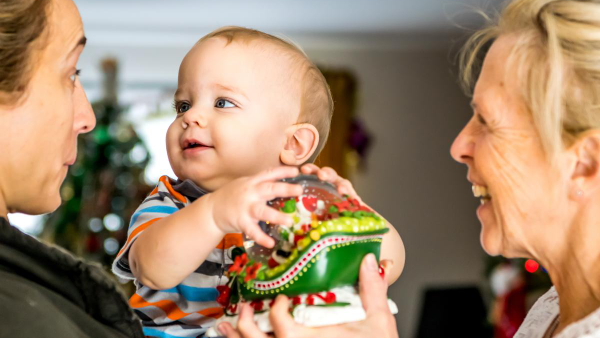Author
Becoming a parent is usually a joyful experience: the joy of seeing a child beginning the journey through life, the triumphs and the disasters, the shared experiences, the fun and the sadnesses.
For parents, it is also a time of additional responsibilities. First, the exhausting caring for the newly-arrived baby and providing for every need and then, as the child grows, the developing emotional, physical and educational needs.
Responsible parents also have to face the uncomfortable but practical decision of what arrangements should be made in the event of the death or incapacity of both parents or, if separated, of the parent with primary care.
Godparents
Many parents, even if they have no religious beliefs, appoint one or more relations or friends as ‘godparents’ for their child. The parents hope that the godparents will provide moral and practical advice and support to the child possibly also close friendship, both during childhood and beyond.
Naming a person to assume that position does not, however, create any sort of legal relationship between the godparent and the child, whether during the lifetime of the parents or on their death. A godparent is not the same as a guardian.
Guardians
The appointment of a guardian for a child has legal significance. That appointment will usually be made on the basis that it will not take effect unless both parents have died. If the parents have separated and the parent with care of the child has a court order providing that the child should live with them, that parent can appoint someone other than the surviving parent to be a guardian. The effect of this is that the guardian and the surviving parent will share parental responsibility for the child. There may still be a dispute between the guardian and the surviving parent as to the best arrangements for the child.
The role of a Guardian is to assume the rights and obligations of a legal parent in taking responsibility for the child until the child is 18.
Appointment of a Guardian
A Guardian is usually appointed in a will although it can also be done in a separate formal document prepared for the purpose. It is possible also to appoint a substitute guardian in the event that the first choice is not available or able to take up the role.
Death of the parents where there is no formal appointment of a Guardian
If parents do not appoint a guardian and there is no obviously suitable person to assume the role, the court may be asked to make an appointment after an investigation into the possibilities.
In some cases, even when a guardian has been appointed, if a dispute arises over who would be the best person to assume responsibility for the child, the court may be asked to make a decision. The overriding consideration is what is likely to be in the best interests of the child. A child is not a possession and the absolute right to have a child living with a person cannot pass by will.
Summary
Parents of a young child or children should think about this uncomfortable topic. Simply thinking about and making arrangements will not make the situation any more likely to happen. Parents will just have done the best they can to deal with such an unlikely and extremely unfortunate situation.
If you or anyone you know, are affected by the issues raised above and would like more information or some preliminary, confidential advice, please contact one of our experienced experts in our family team.

